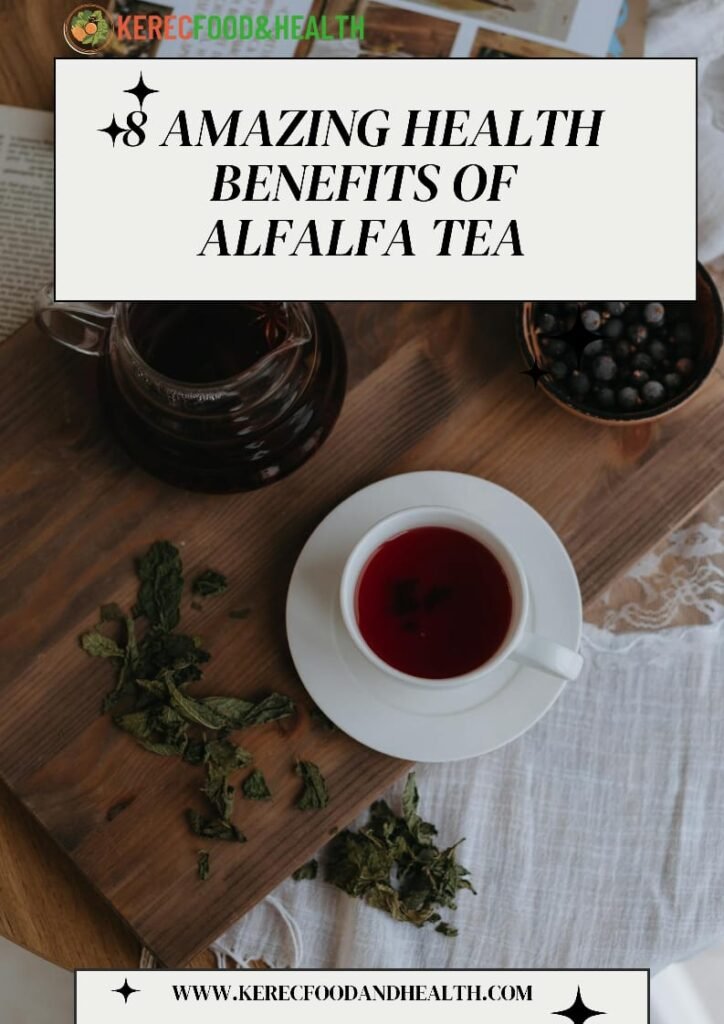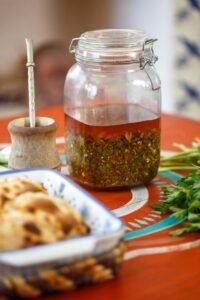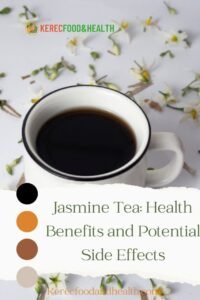Alfalfa Tea
In the vast world of herbal teas, alfalfa tea stands out as an often-overlooked gem. While many associate alfalfas primarily with fodder for livestock, its benefits extend far beyond the barnyard. Steeped in history and brimming with health advantages, alfalfa tea serves as a versatile and nutrient-rich elixir that deserves a place in your daily routine.

What is Alfalfa Tea?
Alfalfa Tea is an herbal infusion made from the dried leaves and flowers of the alfalfa plant, scientifically known as Medicago sativa. Though often associated with livestock fodder, alfalfa has a rich history of use in traditional medicine and wellness practices.
The Origins of Alfalfa Tea (Medicago sativa)
Alfalfa, scientifically known as Medicago sativa, has a rich cultivation history that spans centuries. Its use dates back to ancient civilizations, including the Greeks and Romans. Originally native to southwest Asia, alfalfa was cultivated in Iran over 6,000 years ago. Since then, it has spread across the globe and is now cultivated in many regions. Traditionally, people prized alfalfa for its ability to improve soil fertility and provide nutritious fodder for livestock.
Brewing a Cup of Wellness
Brewing alfalfa tea is a straightforward process. To prepare it, simply steep dried alfalfa leaves or seeds in hot water for about 5-10 minutes, depending on your desired strength. The resulting infusion boasts a mild, slightly nutty flavor with subtle earthy undertones, making it a pleasant beverage enjoyed hot or cold.

8 Amazing Health Benefits of Alfalfa Tea
Alfalfa tea is an herbal infusion made from the dried leaves of the alfalfa plant (Medicago sativa). Though scientific research on the specific health effects of alfalfa teas is limited, numerous potential benefits have emerged:
1. Nutrient-rich
Alfalfa is packed with essential nutrients, including vitamins A, C, E, and K, along with minerals such as calcium, iron, potassium, and magnesium. By drinking this tea, you can conveniently supplement your diet with these nutrients.
2. Antioxidant properties
Alfalfa contains antioxidants that help reduce oxidative stress in the body. These antioxidants, such as flavonoids and polyphenols, protect against the damaging effects of free radicals and may reduce the risk of chronic diseases.
3. Aid digestion
Traditionally, alfalfa has supported digestive health due to its high fiber content, which aids digestion and promotes regularity. It is believed to have mild diuretic and laxative properties that help facilitate regular bowel movements and alleviate constipation. Additionally, alfalfa contains enzymes that may improve food breakdown efficiency, easing digestive discomfort. Consequently, some individuals use alfalfa tea as a natural remedy for indigestion and bloating.
4. Lower cholesterol levels
Some animal studies suggest that alfalfa may help lower cholesterol levels. The fiber in alfalfa binds to cholesterol in the intestines, preventing its absorption into the bloodstream. However, more research is necessary to confirm these effects in humans.
5. Menopausal symptom relief
Alfalfa contains plant compounds called phytoestrogens, which resemble estrogen in the human body. These phytoestrogens may exert mild estrogenic effects, leading some women to use alfalfa tea to alleviate menopausal symptoms, such as hot flashes and night sweats. Nonetheless, evidence supporting its effectiveness is limited.
6. Boost immune system
Alfalfa is believed to possess immunomodulatory properties, meaning it may help regulate immune responses.
Alfalfa is rich in essential vitamins and minerals, particularly vitamins A, C, and E, and phytonutrients that can enhance the activity of immune cells, thereby, improving the body’s response to infections.
Furthermore, the chlorophyll in alfalfa can support detoxification by aiding the liver in eliminating toxins, contributing to overall immune health.
Some studies indicate that specific compounds in alfalfa could enhance the activity of certain immune cells, potentially supporting immune function.
7. Detoxification
Alfalfa contains chlorophyll, a natural compound known for its detoxifying properties. By consuming this tea, you may assist in the removal of toxins from the body, promoting liver health and supporting natural detoxification processes.
8. Anti-inflammatory properties
Alfalfa includes compounds with anti-inflammatory properties that may help reduce inflammation in the body and alleviate symptoms of conditions such as arthritis and inflammatory bowel disease.
Side Effects of Alfalfa Tea
While alfalfa tea offers numerous health benefits, exercising caution is essential, especially for certain populations:
1. Pregnant or nursing women
Alfalfa contains a compound called coumestrol, which may mimic estrogen’s effects. Therefore, pregnant or nursing women should consult their healthcare provider before regularly consuming this tea.
2. Individuals on blood-thinning medications
Alfalfa contains vitamin K, crucial for blood clotting. Those taking blood-thinning medications should monitor their vitamin K intake and consult with their healthcare provider before consuming alfalfa tea regularly.
3. Allergic reactions
Some individuals may be allergic to alfalfa or its pollen. If you experience any adverse reactions after consuming alfalfa tea, discontinue use and consult with a healthcare professional.
In Conclusion
Although alfalfa may not be as mainstream as other herbal brews, its impressive array of health benefits makes it a worthy addition to any wellness regimen. Whether you seek to boost your nutrient intake, support digestive health, or simply enjoy a soothing cup of tea, alfalfa tea provides a natural and delicious solution. Embrace the ancient wisdom of this humble plant and experience the revitalizing power of alfalfa tea for yourself.
Source
- https://www.tealife.com.au/blogs/tea-recipes-and-journal/ancient-and-traditional-uses-of-alfalfa-tea?srsltid=AfmBOooBK-M5HRGlK7SjJIMI8DQEhTtPhH5HaRNi2327d2-axFeCWAUC
- https://www.feedipedia.org/node/275
- https://www.thegardenacademy.com/soils-fertility/alfalfa-tea/
- https://www.webmd.com/diet/health-benefits-alfalfa
- https://www.healthline.com/nutrition/alfalfa
- https://www.health.com/alfalfa-benefits-8547342
- https://www.medicinenet.com/alfalfa/article.htm
- https://www.webmd.com/vitamins/ai/ingredientmono-19/alfalfa
- https://www.healthline.com/nutrition/alfalfa
- https://en.wikipedia.org/wiki/Coumestrol





